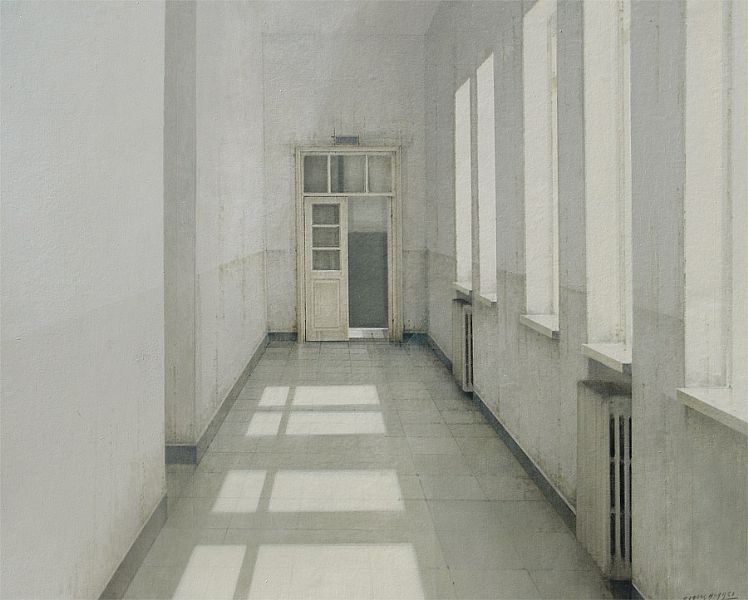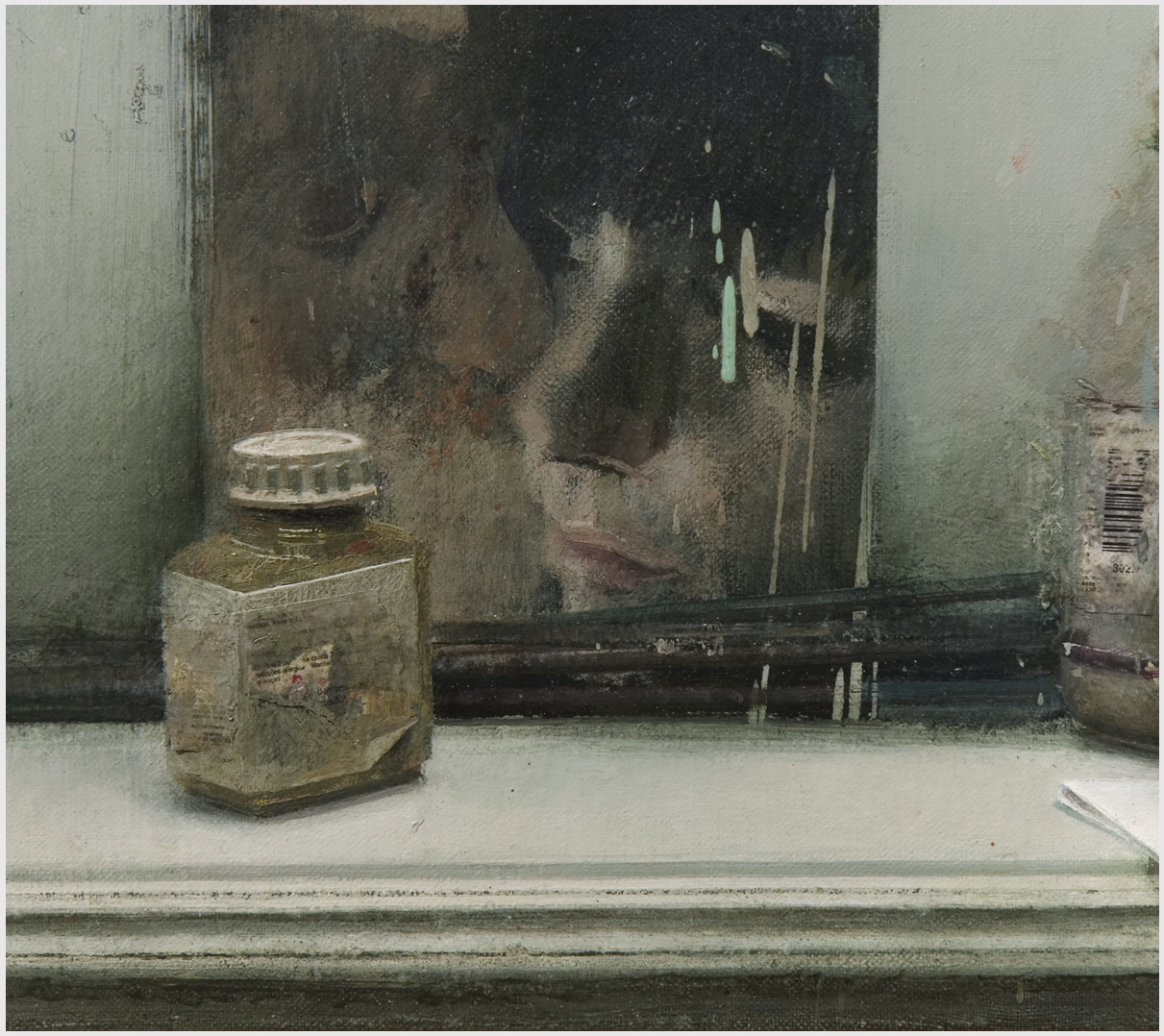This poem is from Vincent Van Gogh's letter to his friends, from time before he started to paint. It explains so much.

The evening hour
Slowly the toll of the angelus-bell resounded o’er the fields,
As they blissfully bathed in the gold of the evening sun.
O solemn, moving moment! When every mother in the village suddenly
Stops the whirring of the wheel to bless herself with the sign of the cross;
While in the field the farmer reins in his steaming horses,
And, behind the plough, bares his head to murmur an Ave.
O solemn, moving moment! When the bell that proclaims far and wide
The end of the day’s work makes those powerful, dripping heads
Bow down for Him who causes the sweat in the furrow to thrive.
For the artist, too, on the slope of yon shady hill,
Absorbed in his painting from the earliest morning,
The angelus now gave the sign to retreat. Slowly he wiped
His brush and palette, which he stowed with his canvas in the valise,
Folded his camp-stool and dreamily descended the path
That leads, gently winding, through the flowery dale to the village.
Yet how oft, before reaching the foot of the hill, did he
Stand admiringly still, to imprint on his mind once again
The refreshing scene down below, unfolding before his eyes.
Just before him lay the village, with a hill to north and to south,
Between whose crests the sun, inflamed and sinking in the west,
Let flow the whole wealth of its colours and up-conjured glory.
The bell, in the grey tower entwined with black-green ivy,
Was now silent. Hanging motionless on high were the brown
Sails of the windmill; the leaves stood still and above the huts
Blue clouds of peat-smoke ascended so straight from the chimneys
That they, too, seemed to hang motionless in the shimmering air.
’Twas as though this village, this field, those hills, as though everything,
Before wrapping itself in a cloak of evening dew to sleep
Beneath the sun’s parting kiss, silently and gratefully
Recalled once more the peace and plenty it had again savoured.
Soon, though, this silence was gently disturbed by the sweet sounds
Of the evening. In the distance, from a hollow in the hill echoed
Lingeringly the sound of the cow-horn, calling the cattle.
And at this sign from their herdsman there soon appeared in the furrowed,
Sandy mountain road the whole of a colourful herd of cows.
Cracking and smacking, the lad’s lash drove them forward,
While they, as if by turns, their necks outstretched, with friendly lowing
Greeted from afar the cow-shed where the milkmaid
Waited for them each evening to ease their taut udders.
Thus on the paths running out from the village like spokes
From an axle, there slowly came movement and life.
Here, ’twas a farmer, dragging homeward a harrow or plough
On a sledge, whistling a tune and riding beside on his bay;
There, a blushing lass, on her head a lock of sweet clover
Laced with daisies and poppies, called from afar to the others,
Kindly and gaily at once, her clear-toned ‘good evening’.
Further... But on the same track where the painter’s path
Led, he suddenly heard peals of joyous laughter.
Rocking from side to side, a wagon, nearly toppling
Under its load of fresh-harvested buckwheat, came rumbling closer,
Both horse and burden adorned with fluttering ribbons and greenery.
Children, all with wreaths of flowers on their little flaxen heads,
Were seated on top, happily waving branches of alder,
Or scattering flowers and leaves, which rained down on all sides,
While round the wagon a troop of country lads and lasses
Skipped and sang enough to startle the whole drowsy plain.
Quietly smiling, the Painter, from behind the thicket,
Watched as the revellers slowly wound their way down the rutted road.
‘Aye’, he thus mumbled, ‘Aye, the Lord must think it
A happy sound, the jubilance with which these hearts
So simply pour forth their thanks as they gather the last
Fruits, which He yearly lets grow fully ripe from their toil.
Yea, for the purest prayer of simplicity and innocence is joy!’
And thus contemplating the calm, deep delight upon which the soul
Feasts in the fields; or with his artist’s mind reconstructing
In silent rapture the glorious scene of a moment ago,
He found he had sauntered, unnoticing, into the village.
Already the purple and yellow had faded to grey in the west,
And in the east there had risen close by the little church the full
Copper-coloured disc of the moon, in mist enshrouded,
When he entered The Swan, the inn where he boarded.
Jan van Beers
(The boarder)
































